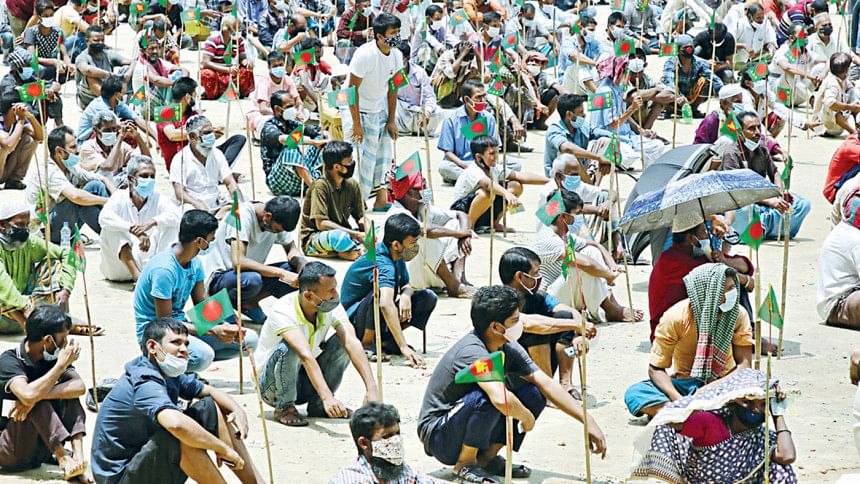The youth deserve better from us

It is devastating to note that as many as 1.6 million youths lost their jobs and about 20 million experienced a loss of income as a result of the pandemic, according to a first-of-its-kind study by the finance ministry. The International Labour Organization (ILO) had previously found that in 2020, youth employment around the world had dropped by 8.7 percent and adult employment by 3.7 percent—demonstrating the overall negative impact of the pandemic globally. In spite of that, the pandemic's effect on Bangladesh's youth labour force has been particularly brutal.
Despite its impressive economic growth, Bangladesh had struggled to create enough jobs and exciting new opportunities for its younger population even before the pandemic began. For example, according to the Labour Force Survey 2016-17, even though the country's overall unemployment rate stood at 4.2 percent, youth unemployment rate far surpassed that at 12.3 percent. Moreover, during that time, the rate of job creation had already slowed down at a worrying rate—between 2013 and 2016-17, while the average annual GDP growth was 6.6 percent, the average annual growth of jobs was only 0.9 percent. The pandemic, of course, has further exacerbated these problems.
Aside from job market related issues, the pandemic has also created other new challenges for our young people. According to the government study, millions of college and university students are facing uncertainties in regards to whether they will be able to complete their degrees on time. And due to sitting idly at home for long durations of time, many more are at risk of developing various health problems such as sleep disorders, obesity, cardiovascular diseases and diabetes.
The combined effects of these problems mean we are potentially at risk of losing an entire generation, as well as their productivity and creativity. Whereas now is the time for Bangladesh to take advantage of its demographic dividend—which will not last much longer—the fact that it is struggling to provide its younger population with even the most basic of opportunities is extremely unfortunate. And not all of this can be blamed on the pandemic.
The rate of corruption in our country, which always eats away at the potential for productivity and creativity, is something that has been plaguing Bangladesh for decades. Unfortunately, instead of going down, corruption only seems to have increased in recent times. Lack of good governance is another factor that has been holding back our young people from fully committing to our social and economic progress.
Now that the pandemic has really set us back, the only way to turn things around is for the government to sincerely try and address these long-standing problems. The government report itself has acknowledged this. Therefore, we hope the policymakers will now recognise the urgency with which they must act to ensure that our young people have all the tools at their disposal to create a brighter future for themselves and our country—and to remove all the governance and politics related barriers that have so often stood in their way.

 For all latest news, follow The Daily Star's Google News channel.
For all latest news, follow The Daily Star's Google News channel. 



Comments